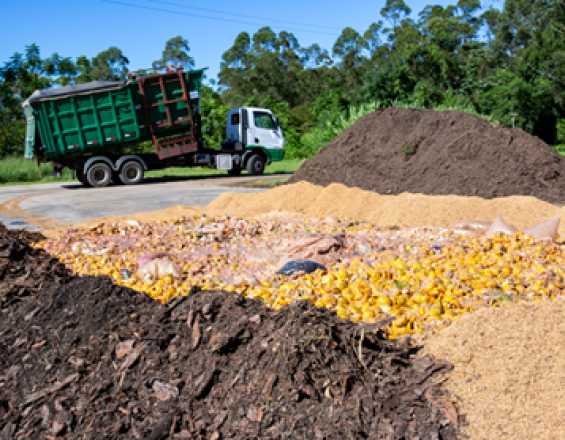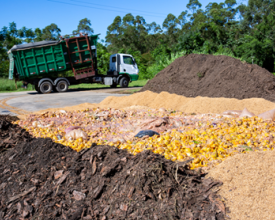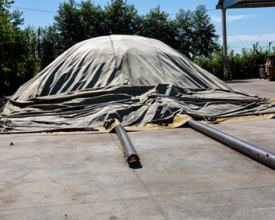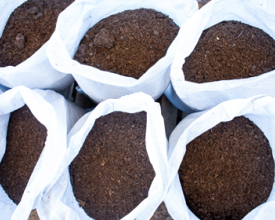
Private Sector Composting Initiative: The Case of Içara - SC

Composul Compostagem is a private sector initiative that collaborates with the municipality by contributing to the reduction of organic waste sent to the landfill. Composul collects organic waste from large private generators located in the vicinity of the municipality of Içara, Santa Catarina, and performs composting with the production of fertilizer for agriculture and gardening. The region has a large number of municipalities within short distances, which facilitates the logistics of care and centralized treatment in a single yard. The technology used allows large-scale composting in a relatively small area and low operating cost. This technology consists of static piles with forced ventilation and a semi-permeable membrane cover. Because it is closed, this process reduces the generation of leachate, since it separates the water from the rain and also avoids odors and vectors.
Impacts
The solutions initiated by the private sector collaborate with waste management by municipalities as they offer a solution for large generators (such as businesses, hotels, etc.) that must comply with legal guidelines, reducing the final disposal of organic matter in landfills. This also reduces landfill emissions and contributes to better waste management and better commitment of public resources for sanitation, with exemption from collection and treatment. These actions can be further encouraged through the creation of specific legislation, such as a law for large waste generators. Since the start of the initiative in 2012, an average of 14 tons of waste has been collected per day. For each ton, 300 kilograms of compost can be produced, which can be used in agriculture.




